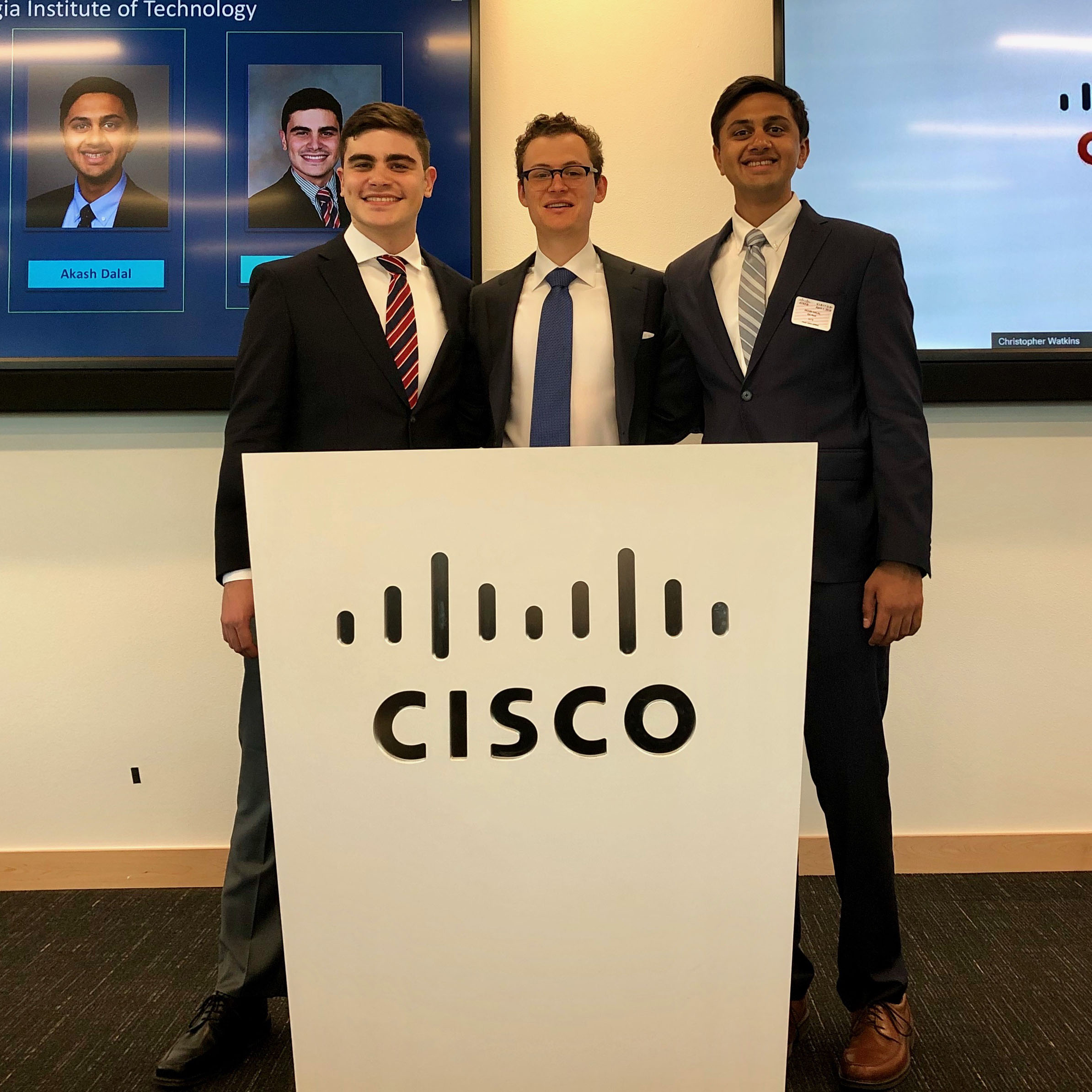A team of three undergraduate students from the H. Milton Stewart School of Industrial and Systems Engineering (ISyE), fourth-year Akash Dalal and fifth-years Jorge Cruz Serrallés and Conner Reinhardt, placed third in the first-ever National Supply Chain Case Competition, hosted in San Jose, California by Cisco.
The company developed the competition as a way “to attract and recruit diverse talent,” according to Supply Chain Inclusion & Diversity Global Lead Modupe R. Congleton. Cisco invited teams of students from higher education institutions that have particularly strong supply chain programs – Georgia Tech, Cal Poly, Michigan State, Arizona State, and two HBCUs, Howard University and N.C. A&T, which placed first and second, respectively – to participate. Twenty-six teams applied, and one team was selected from each school to compete at Cisco’s worldwide headquarters.
After the teams went through two preliminary rounds that required written answers, Cisco gave the students a problem to solve: use AI to improve supply chain customer service.
Serrallés explained their case this way: “You call a customer support line, and instead of being connected immediately to a person, you get an operator saying ‘Press one if you need help with this thing.’ So you press one, and then you have to wait 30 seconds, while you listen to all the options for the next selection. After several minutes, you’re eventually connected to someone, and it ends up being the wrong person.”
“It’s super annoying,” Dalal said. “And it’s bad for companies, because their customers get upset, and the companies can’t plan for the right number of employees assigned to help customers with each issue. As part of our research, we called the Cisco customer service line, and the person we spoke with said that 20-30 percent of the calls he gets each day involve him rerouting the calls to the correct employee.”
Fortunately, each member of the ISyE team had some background experience that helped them solve this problem. Reinhardt works part-time for Amazon as a transportation specialist and answers a lot of customer service calls. Serrallés has interned with Delta and worked on process improvements, and Dalal has interned at Tesla in logistics and has experience with AI through his computer science minor.
“We created a solution called Cisco Cora, which paired an automated phone agent – the AI – with an active disruption management system,” Reinhardt said.
When a customer calls, instead of being routed through a directory, they are asked, “What do you need help with?” And when the customer says, for example, “I need a refund,” the AI – which can identify key words such as “refund,” “return,” “order,” or “delay” – routes the caller to the person who can assist with that.
“This enables service agents – the humans – to be more proactive than reactive,” Serrallés noted.
Reinhardt, Serrallés, and Dalal successfully presented their ideas to more than eight vice presidents from Cisco’s supply chain division and received positive feedback about both their solution and their ability to work as a team.
In addition to third-place accolades, the team came home with an $800 scholarship.
“It was an incredibly enriching experience,” Reinhardt added. “We were super proud to bring home that recognition for Georgia Tech.”
